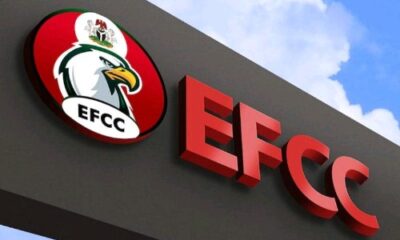Pan African financial institution, United Bank for Africa (UBA) Plc, has introduced the new UBA Naira Credit Card to its teeming customers in fulfillment of its promise to ease accessibility to funds and improve the overall standard of living.
With the new UBA Naira Credit Card, customers whose salary accounts have been domiciled with the bank for a minimum of three months and are employees of corporates under UBA’s approved counterparty list with a minimum net monthly income of N250,000 are in for a stress-free business and personal lifestyle. They will be qualified to access up to N3m credit, with extremely flexible repayment plans of as low as 10% of their monthly outstanding due.
Specifically, these customers aged between 18 and 57years who apply for the UBA credit card will also enjoy easy access to funds with a revolving line of credit and up to 45 days interest-free credit, flexible repayment options; amazing discounts at select merchant locations including Restaurants, Boutiques, among other mouth-watering benefits.
The UBA credit card also allows ATM withdrawals in Nigeria or abroad wherever the Visa logo is displayed while allowing ease of payment of goods and services locally and Internationally on POS/WEB terminals where the Visa logo is displayed.
UBA’s Group Head, Digital Banking, Sampson Aneke, said that as a bank that is interested in the welfare of Nigerians, UBA is always on the forefront of developing products and services aimed at creating wealth, easing living conditions and meeting the needs of its customers all over the world.
He said, “At UBA, we recognize that access to credit is fundamental to the creation of wealth and value in the economy. Unfortunately, the country has been challenged in this regard with only about 2% of the population presently having access to bank loans.
“It is in addressing these developmental and household challenges that the bank has in recent times developed and introduced a number of unique lending products to the market, with the latest being the innovative UBA credit card.”
Aneke who spoke glowingly about all the benefits that the banks’ customers stand to enjoy from the credit card explained that the UBA Credit card is currently available as Visa Gold card with a card limit of between N75,000 to N1,000,000 and Visa Platinum card with a limit of between N1,000,001 to N3,000,000 and can be used locally and internationally at any ATM or POS outlet which has the Visa logo, WEB (online), and POS terminals.
“There is an interest-free period of 45 days on POS/Web transactions provided 100% repayment is made on the repayment due date and customers are entitled to 30% (annualized) of their monthly salary as credit card limit subject to the existing Debt Service Ratio (DSR). The monthly repayment cycle will run from the 15th of every month to the 15th of the next month and the credit card statement showing transaction details within the period and the amount due for repayment will be sent to the cardholders’ registered email address,” Aneke said.
He explained that to get the card, customers can walk into any UBA branch or visit the bank’s website at www.ubagroup.com to download the credit card application form, fill it and submit to the Customer Service Officer at any UBA branch nationwide.
United Bank for Africa is a leading pan-African financial institution offering banking services to more than twenty million customers globally. With a footprint in 20 African countries and presence globally in the United Kingdom, the USA, and France, UBA is connecting people and businesses across Africa through retail, commercial and corporate banking, innovative cross border payments and remittances, trade finance, and ancillary banking services.

 BIG STORY4 days ago
BIG STORY4 days ago
 BIG STORY4 days ago
BIG STORY4 days ago
 BIG STORY2 days ago
BIG STORY2 days ago
 BIG STORY4 days ago
BIG STORY4 days ago
 BIG STORY2 days ago
BIG STORY2 days ago
 BIG STORY2 days ago
BIG STORY2 days ago
 BIG STORY2 days ago
BIG STORY2 days ago
 BIG STORY3 days ago
BIG STORY3 days ago



































